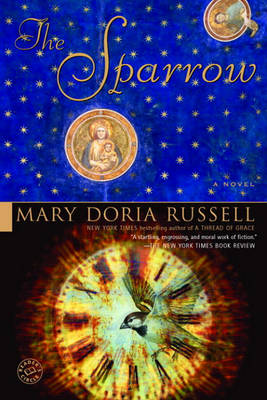This is nominally that staple of science fiction, a first-contact story, and has the classic interweaving storylines of a good space opera, though with only two lines in this case. But as with all of the best of them (I think I had this thought when reading [b:The Mote in God's Eye|100365|The Mote in God's Eye (Moties, #1)|Larry Niven|https://i.gr-assets.com/images/S/compressed.photo.goodreads.com/books/1399490037l/100365._SY75_.jpg|2190500], too), it's not really about the aliens. It's about using them as a mirror to reflect and reflect upon humanity. ([very mild] We don't meet a single alien until more than halfway through the book. We don't even leave Earth until a quarter of the way through.)
Deeply religious but not proselytizing, it asks the Big Questions, and occasionally offers possible answers to some of them, though it never claims to know for sure, and in the end the reader is left to find their own resolution. It is ground undeniably well-tread by many great theologians, but there's nothing quite like an alien adventure to make it more interesting.
It is at once funny, charming, thought-provoking, and incredibly heartbreaking. There's a moment at the end that you know is coming, nearly from the very beginning (assuming you're even a minimally astute reader - how the supporting cast didn't see it almost immediately I may never understand), that still managed to make me grieve for a shattered soul. And as an academic myself, I recognize a fellow academician in the author, because this book is also unabashedly nerdy. Not in an entertaining yet sometimes cringy way like [b:Ready Player One|9969571|Ready Player One (Ready Player One, #1)|Ernest Cline|https://i.gr-assets.com/images/S/compressed.photo.goodreads.com/books/1500930947l/9969571._SY75_.jpg|14863741], but as a celebration of knowledge (even when some liberties are taken with the science). A particular quote that highlighted this for me:
"How long do you suppose I can go on loving you more every day?"
And he devised for her a calculus of love, which approached infinity as a limit, and made her smile again.
I don't think it's possible for me to recommend this one highly enough. It may very well be destined for the top 10 list I will inevitably try (and fail) to write on my deathbed.
